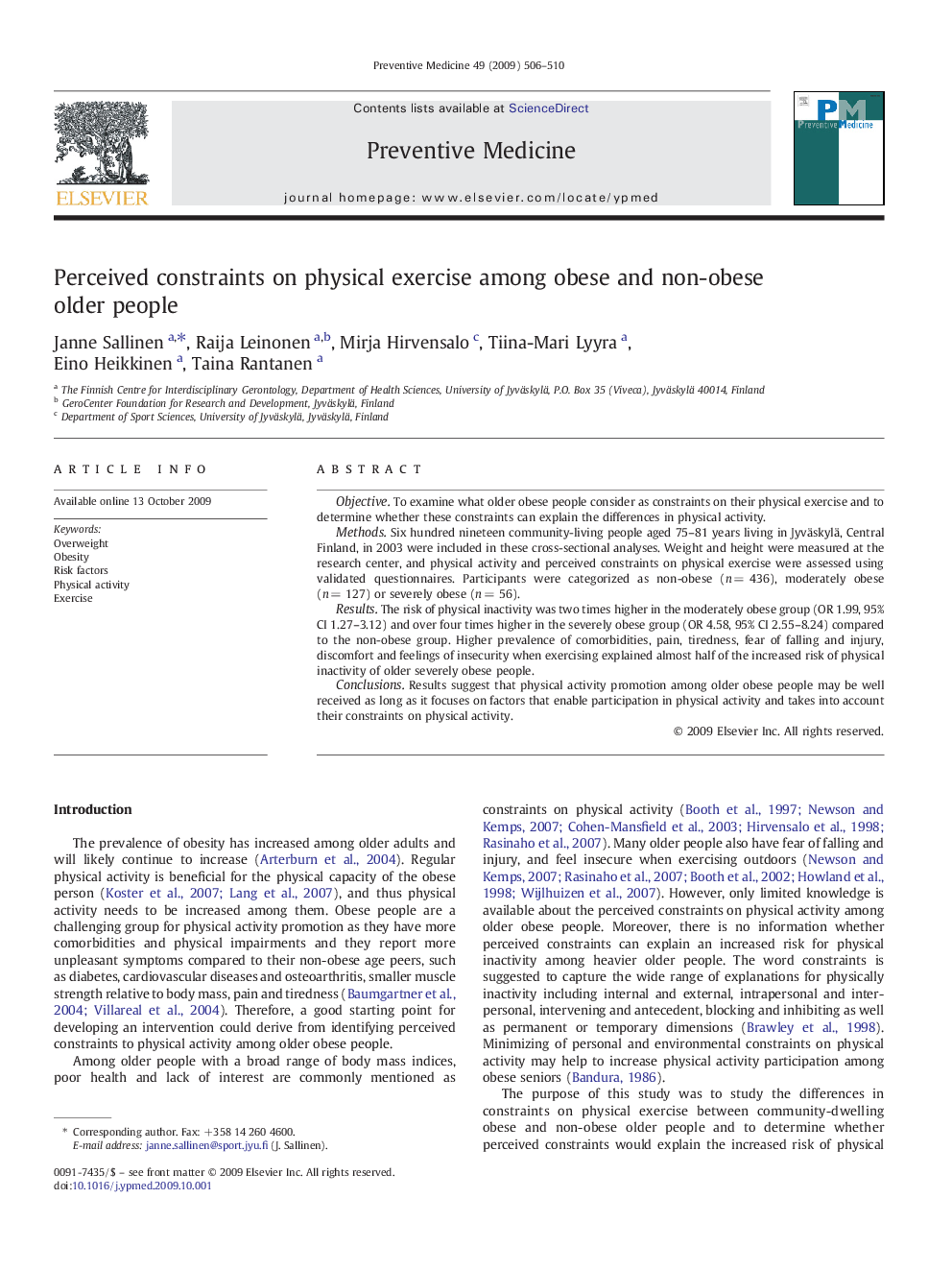| کد مقاله | کد نشریه | سال انتشار | مقاله انگلیسی | نسخه تمام متن |
|---|---|---|---|---|
| 3101271 | 1191247 | 2009 | 5 صفحه PDF | دانلود رایگان |

ObjectiveTo examine what older obese people consider as constraints on their physical exercise and to determine whether these constraints can explain the differences in physical activity.MethodsSix hundred nineteen community-living people aged 75–81 years living in Jyväskylä, Central Finland, in 2003 were included in these cross-sectional analyses. Weight and height were measured at the research center, and physical activity and perceived constraints on physical exercise were assessed using validated questionnaires. Participants were categorized as non-obese (n = 436), moderately obese (n = 127) or severely obese (n = 56).ResultsThe risk of physical inactivity was two times higher in the moderately obese group (OR 1.99, 95% CI 1.27–3.12) and over four times higher in the severely obese group (OR 4.58, 95% CI 2.55–8.24) compared to the non-obese group. Higher prevalence of comorbidities, pain, tiredness, fear of falling and injury, discomfort and feelings of insecurity when exercising explained almost half of the increased risk of physical inactivity of older severely obese people.ConclusionsResults suggest that physical activity promotion among older obese people may be well received as long as it focuses on factors that enable participation in physical activity and takes into account their constraints on physical activity.
Journal: Preventive Medicine - Volume 49, Issue 6, December 2009, Pages 506–510